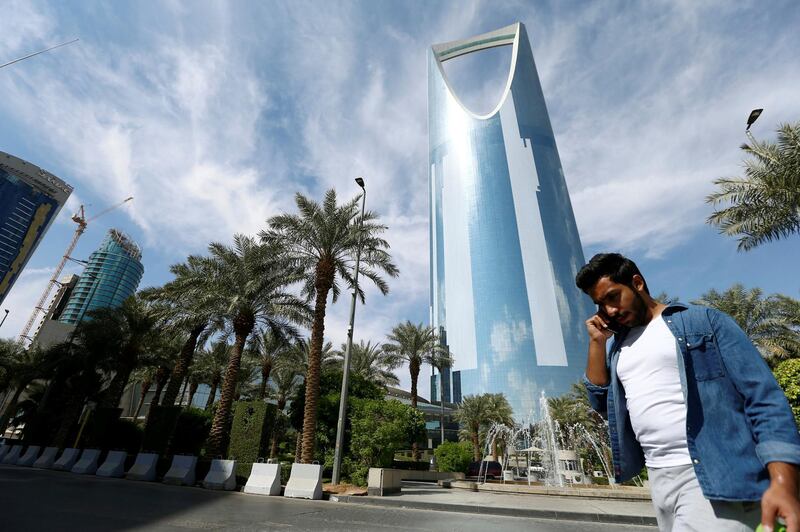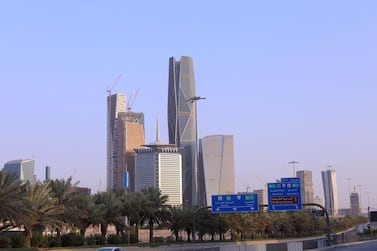Saudi Arabia raised the monthly minimum wage for its citizens by 33 per cent, according to a statement by the ministry of human resources and social development.
The minimum wage has been increased to 4,000 riyals ($1,066), Ahmed bin Sulaiman Al-Rajhi, the minister of human resources and social development, said in a statement on Wednesday.
Workers paid between the previous minimum wage of 3,000 riyals and 4,000 riyals are counted as half of a Saudi employee, under the kingdom's Nitaqat programme for organisations. Any citizen being paid less than 3000 riyals is not counted under Nitaqat as part of the Saudisation programme.
Inflation in the kingdom accelerated to an annual 5.8 per cent in October 2020, according to recent data by the country's General Authority for Statistics.
The Nitaqat programme was introduced by the kingdom in 2011 to boost the employment of citizens in the private sector. The scheme rates organisations based on their compliance with quotas and classifies them into three bands. Companies with a higher rating have greater immigration benefits, while those with lower a rating face more restrictions.
“This is great news for all of us who have been struggling during the pandemic. For those who lost jobs and those of us who had pay cuts. The increase in salaries was much needed at this time, it’s such a relief," said Yasser AlBukhari, a business executive in Jeddah.
Part-time workers with a minimum salary of 3,000 and insurance are recognised as half of an employee by the Nitaqat programme.
“It encourages us to hire more workers that can work part-time or within a flexible work system structure especially since the nature of work varies with every company," Rayan Bakr, an event coordinator in Riyadh said following the decision to raise the minimum wage.
"I usually need to outsource specialists, volunteers and freelance consultants for events and now this gives us more confidence and assurance that we can have more Saudis join the team and improve our status under the Nitaqat programme.”
An employee working under the flexible work system is recognised by the programme, provided that they complete a total of 168 work hours.
“This is a great move for employees and employers alike. We never had a chance to work part-time and now freelancers will find more jobs since firms want to maintain the Saudi quota under Nitaqat,” said Abdullah Firas, a freelancer in Jeddah.







